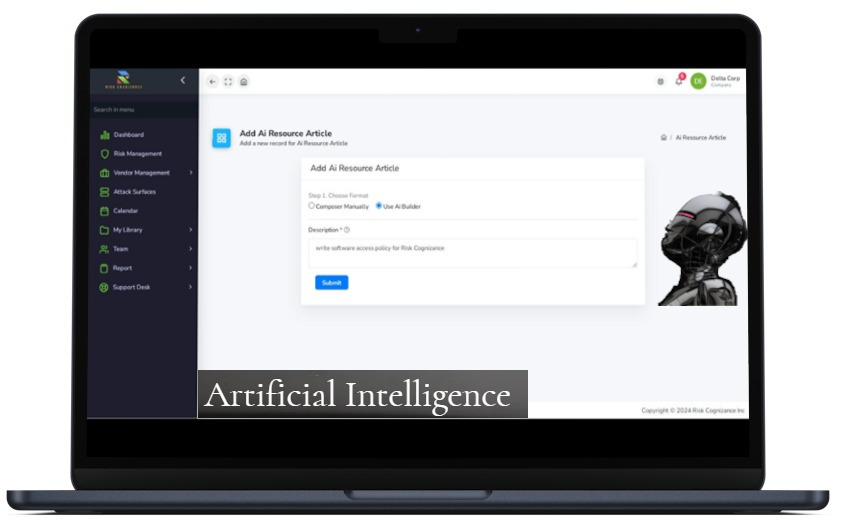Overview
Risk Cognizance is a comprehensive GRC (Governance, Risk, and Compliance) platform designed to support organizations in navigating complex compliance landscapes, ensuring effective security management, and achieving regulatory alignment. This complete guide outlines how Risk Cognizance addresses critical compliance frameworks such as SOC 2, ISO 27001, CMMC, PCI DSS, HIPAA, and GDPR, along with security programs, readiness assessments, security assessments, compliance management, and compliance assessments.
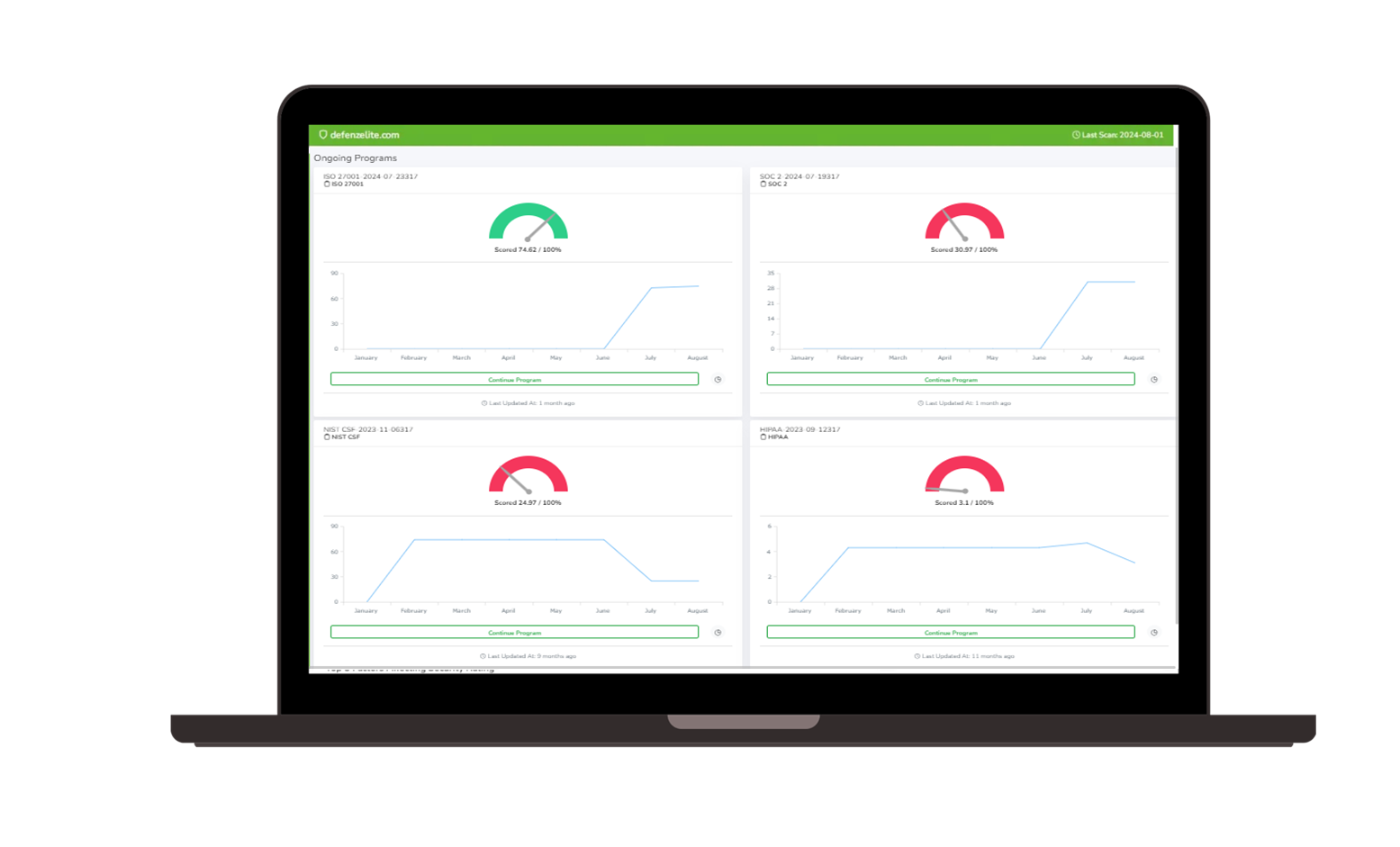 Governance, Risk, and Compliance (GRC) | 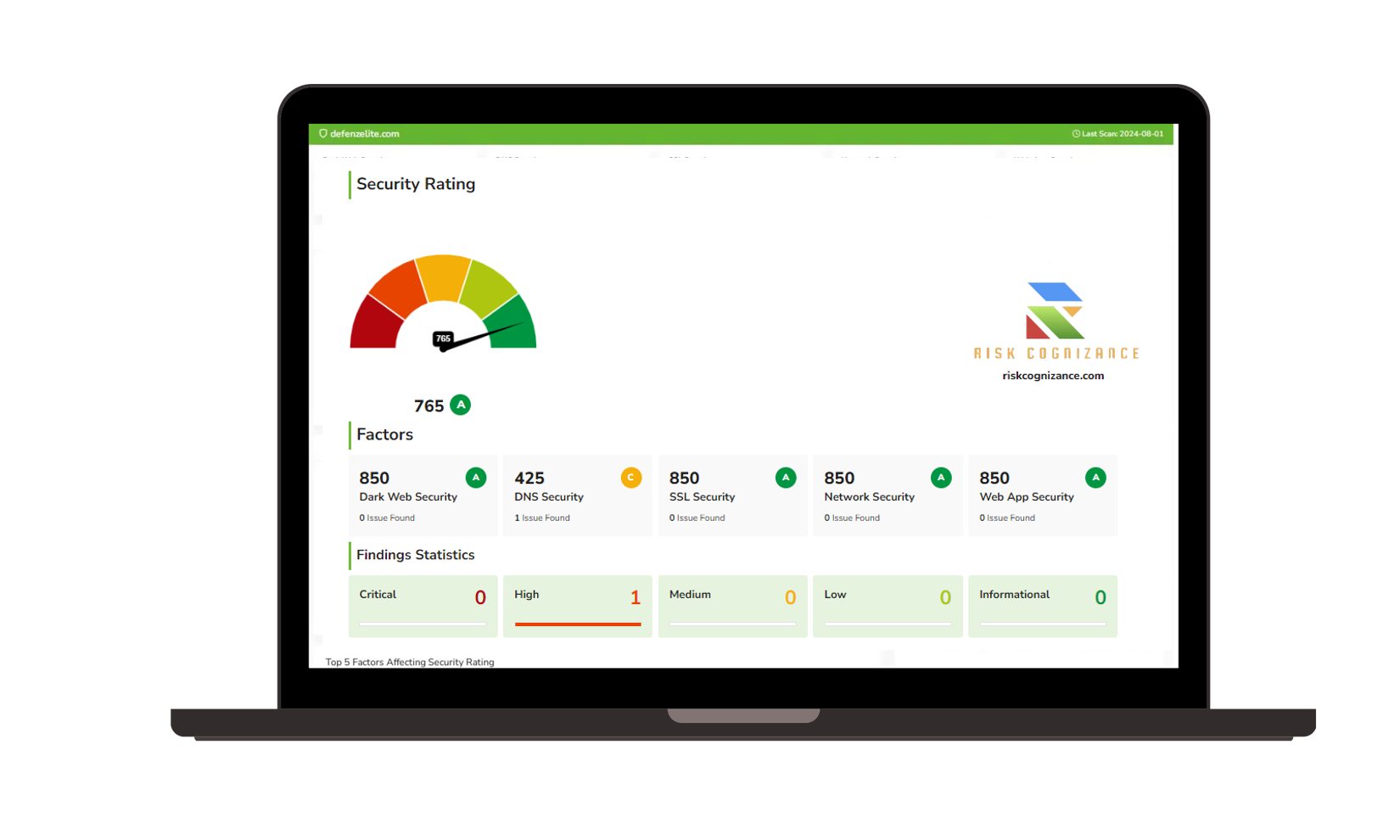 Third-party Risk Management |
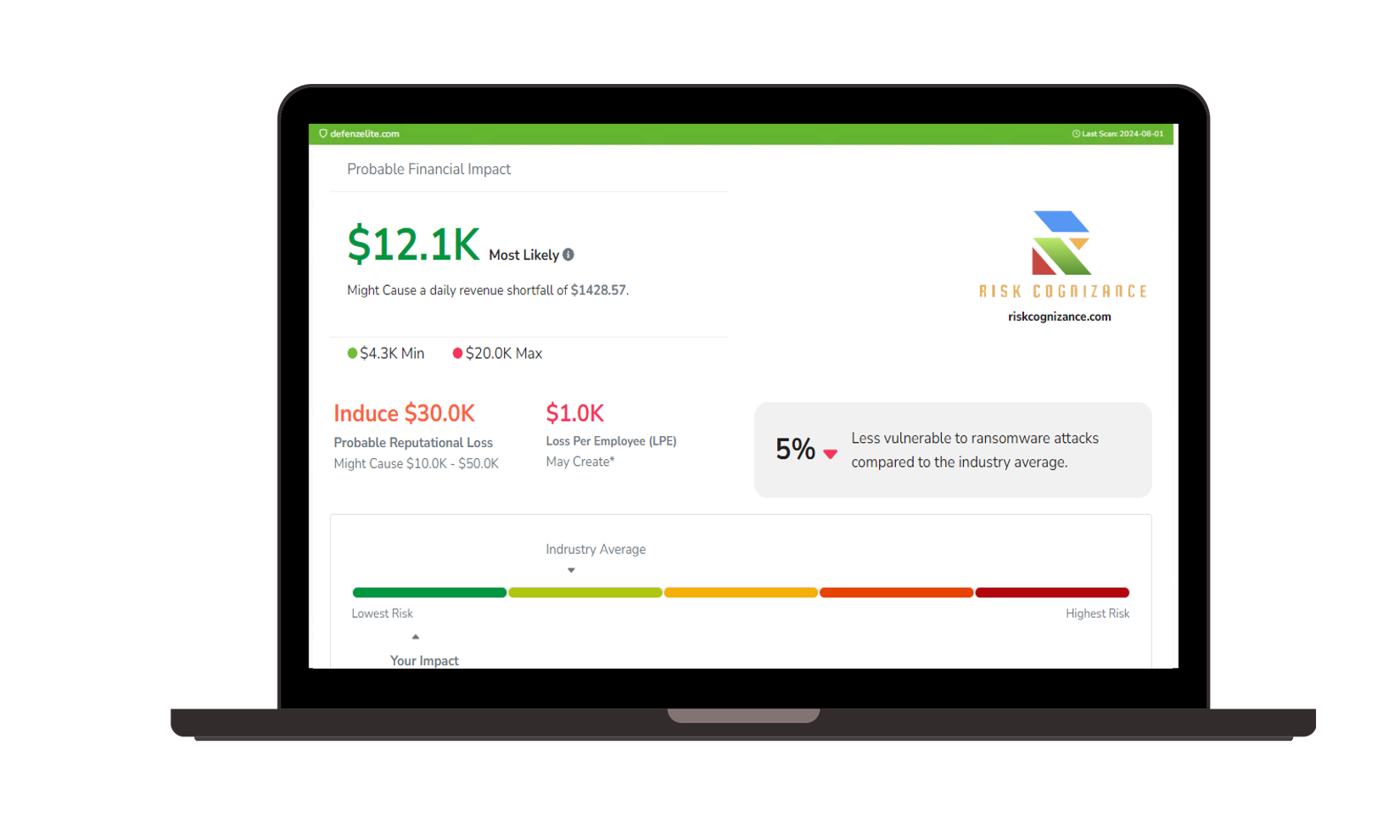 Ransomware Susceptibility | 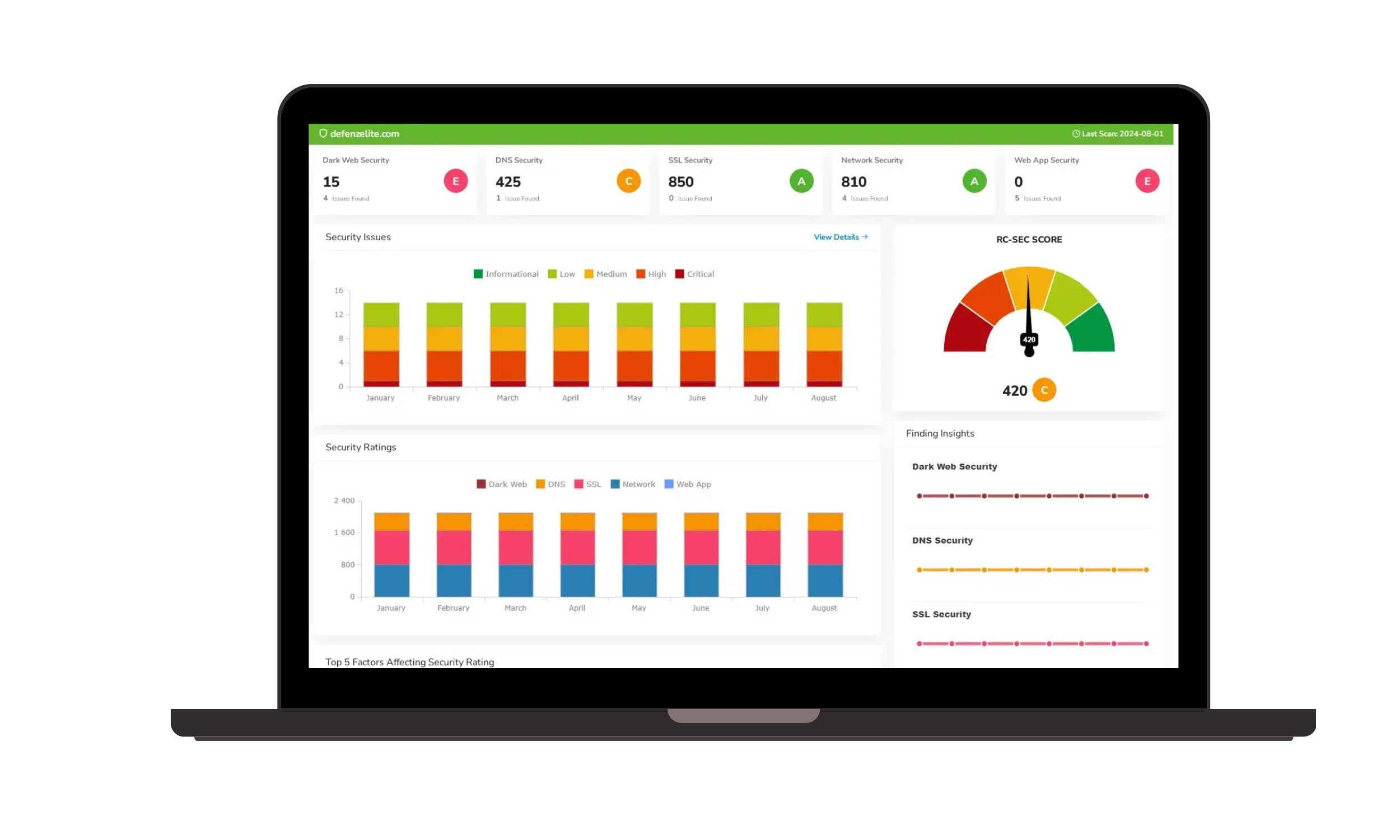 GRC and Attack Surface |
Artificial Intelligence | |
Overview of Compliance Frameworks and Security Programs
1. SOC 2 Compliance
SOC 2 is a widely recognized standard for managing data security. Developed by the American Institute of CPAs (AICPA), it defines criteria for handling customer data based on five "Trust Service Criteria"—security, availability, processing integrity, confidentiality, and privacy.
- Readiness Assessment: Risk Cognizance performs a comprehensive SOC 2 readiness assessment to evaluate your organization's preparedness.
- Gap Analysis: Identifies compliance gaps and recommends remediation steps.
- Automated Security Program Implementation: Establishes a robust security program tailored to meet SOC 2 requirements.
SOC 2 Use Case: Ideal for SaaS companies and service providers that need to demonstrate secure data management practices to clients.
2. ISO 27001 Compliance
ISO 27001 is an international standard for implementing an Information Security Management System (ISMS). It provides a systematic approach to managing sensitive information.
- Security Assessment: Conducts a detailed security assessment to identify vulnerabilities.
- Policy Management: Supports the creation and enforcement of information security policies.
- Continuous Compliance Monitoring: Automatically monitors compliance posture against ISO 27001 controls.
ISO 27001 Use Case: Best suited for organizations looking to establish a formalized ISMS for global data security practices.
3. CMMC (Cybersecurity Maturity Model Certification) Compliance
The CMMC framework is crucial for businesses working with the U.S. Department of Defense (DoD). It focuses on protecting Federal Contract Information (FCI) and Controlled Unclassified Information (CUI).
- Readiness and Pre-Audit Support: Risk Cognizance provides a detailed readiness assessment for companies seeking CMMC certification.
- Security Program Development: Builds a cybersecurity program in line with CMMC maturity levels.
- Audit Trail and Evidence Collection: Automates evidence collection and audit trails for CMMC audits.
CMMC Use Case: Designed for defense contractors and suppliers working within the DoD supply chain.
4. PCI DSS Compliance
The Payment Card Industry Data Security Standard (PCI DSS) is a global standard that ensures the secure handling of credit card data to protect against fraud.
- Scope Determination: Assists in defining the scope of PCI DSS compliance for cardholder data environments.
- Automated Compliance Assessment: Identifies gaps in the security posture and maps controls to PCI DSS requirements.
- Remediation Guidance: Provides detailed steps for achieving PCI DSS compliance.
PCI DSS Use Case: Essential for organizations handling credit card transactions, including e-commerce businesses and payment service providers.
5. HIPAA Compliance
The Health Insurance Portability and Accountability Act (HIPAA) governs the security and privacy of health information in the United States.
- Readiness Assessment: Assesses current security and privacy practices against HIPAA requirements.
- PHI and ePHI Protection: Ensures safeguards are in place for both physical and electronic Protected Health Information (PHI).
- Automated Documentation and Evidence Collection: Streamlines the process of gathering evidence and maintaining compliance.
HIPAA Use Case: Recommended for healthcare providers, insurers, and any business that handles patient health information.
6. GDPR Compliance
The General Data Protection Regulation (GDPR) is a European Union regulation designed to protect the privacy and personal data of EU citizens.
- Data Mapping and Assessment: Maps data flows to understand how personal data is collected, stored, and processed.
- Consent Management: Manages consent requests and tracks user preferences.
- Automated Data Subject Requests (DSRs): Facilitates compliance with data subject rights such as access, rectification, and deletion.
GDPR Use Case: Essential for any organization that processes the personal data of EU citizens, regardless of where the company is based.
Core Functionalities of Risk Cognizance
Security Program Development
Risk Cognizance helps businesses create and maintain comprehensive security programs aligned with industry standards. This includes policy management, asset inventory, risk assessments, and incident response planning.
Readiness Assessment
The platform’s readiness assessment tools guide organizations through a detailed evaluation of their compliance posture, helping them prepare for formal certifications and external audits.
Security Assessment
Risk Cognizance offers dynamic security assessments tailored to various compliance requirements. These assessments provide insights into existing security controls and highlight areas of improvement.
Compliance Management
- Centralized Control Management: Centralizes management of compliance controls and maps them to multiple frameworks.
- Automated Task Assignment: Automatically assigns compliance tasks to relevant stakeholders and tracks completion.
- Document Management: Organizes compliance documentation, evidence, and policies in one central location.
Compliance Assessments
Risk Cognizance conducts detailed compliance assessments for all supported frameworks. The platform offers real-time visibility into compliance status, helps identify deficiencies, and generates actionable remediation plans.
Benefits of Risk Cognizance
- Time Efficiency: Automates complex compliance tasks, reducing the time required for manual processes.
- Cost Savings: By identifying and mitigating compliance risks early, Risk Cognizance minimizes the potential costs associated with non-compliance.
- Scalability: Supports small businesses and large enterprises alike, with flexible solutions that scale to meet evolving needs.
- Risk Reduction: Offers continuous monitoring and real-time alerts, ensuring organizations remain in compliance and reducing the risk of violations.
Conclusion
Risk Cognizance is an industry-leading GRC platform that helps organizations streamline compliance management, build strong security programs, and maintain regulatory alignment. With comprehensive support for SOC 2, ISO 27001, CMMC, PCI DSS, HIPAA, and GDPR, Risk Cognizance is the ideal solution for businesses seeking to simplify and automate their compliance processes.
Ready to streamline your compliance and security efforts? Get in touch today to see how Risk Cognizance can transform your organization’s compliance management strategy!
Request Callback

